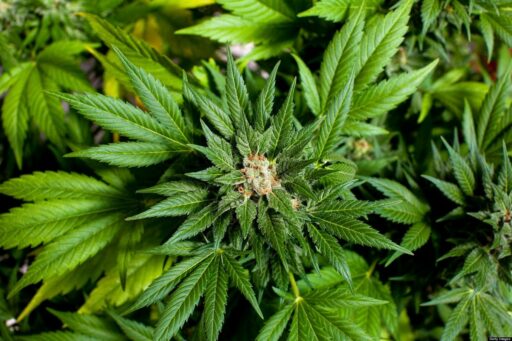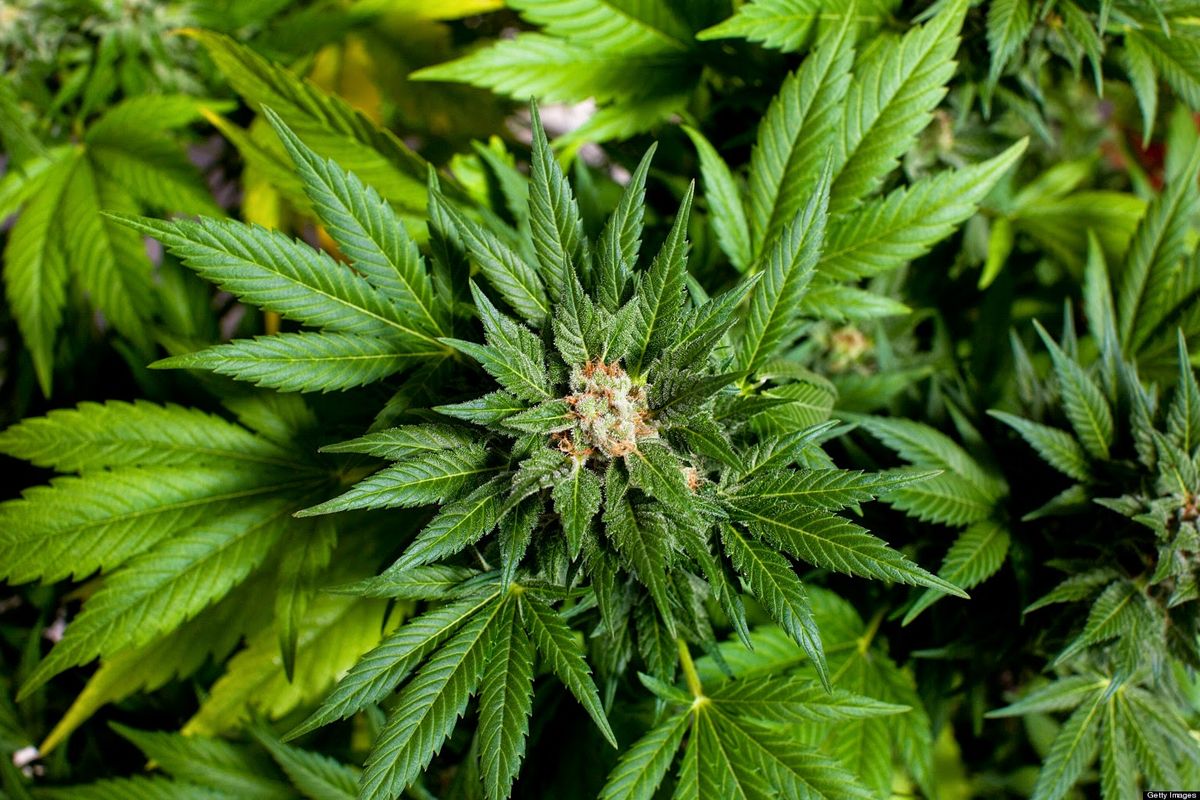The legalization of marijuana has been a topic of heated debate and extensive research. In crafting a research paper outline on this subject, it is crucial to consider various dimensions such as historical legislation, economic impact, social and cultural perspectives, legal challenges, and future trends. By exploring these facets, we can develop a nuanced understanding of the implications of legalizing marijuana and contribute meaningfully to the ongoing discourse.
Key Takeaways
- The evolution of cannabis legislation reveals a complex history influenced by factors such as herbicide use and advocacy by veterans and law enforcement for rescheduling.
- Economic implications of legal cannabis include significant sales milestones, parallels to the craft beer industry, and the utilization of tax revenues for public services.
- Social and cultural perspectives on marijuana have shifted dramatically, with initiatives addressing cannabis justice and the emergence of cannabis nursing as a recognized specialty.
- Legal challenges in the cannabis space are multifaceted, involving issues such as the DOJ’s stance on safe drug consumption sites and the conflict between international treaties and U.S. state legalization.
- Predictions for the future of cannabis legalization indicate potential expansions in various regions, with debates focusing on the distinctions between medical and recreational sales.
The Evolution of Cannabis Legislation

Paraquat and Pot: The Herbicide’s Role in Cannabis Legalization
The intersection of paraquat, a controversial herbicide, and the cannabis legalization movement is a tale of unintended consequences. In the 1970s, paraquat became infamous for its use on marijuana crops, both domestically and abroad, as a means of eradication. This aggressive tactic inadvertently sparked public outcry and galvanized support for cannabis legalization efforts.
- The use of paraquat raised health concerns among consumers and advocates.
- Legalization became a platform to ensure safer cultivation practices.
- The environmental impact of paraquat highlighted the need for regulation.
The push for legalization was not only a response to criminalization but also a movement towards ensuring the safety and integrity of cannabis products.
As the debate over cannabis legalization continues, the lessons learned from the paraquat era remain relevant. The need for safe, regulated cannabis has never been clearer, and the echoes of the past still influence present-day policies.
The Impact of Legalization on Alcohol-Related Pedestrian Deaths
The legalization of marijuana has sparked intense debate over its impact on public safety, particularly concerning impaired driving and pedestrian fatalities. Studies suggest that states with legal cannabis have seen a shift in substance use patterns among drivers. This shift may be influencing the dynamics of alcohol-related incidents on the roads.
Recent data indicates a potential correlation between the legalization of marijuana and a decrease in alcohol-related pedestrian deaths. The argument hinges on the premise that cannabis legalization could lead to a substitution effect, where individuals opt for marijuana over alcohol, thus reducing the instances of drunk driving.
While the direct causality remains a subject of ongoing research, the observed trends point towards a nuanced relationship between cannabis legalization and road safety.
The table below summarizes key findings from various studies on the subject:
| State | Pre-Legalization | Post-Legalization | Change in Pedestrian Deaths |
|---|---|---|---|
| CA | 219 | 195 | -11% |
| CO | 64 | 57 | -11% |
| WA | 108 | 99 | -8% |
It is crucial to consider these findings in the broader context of road safety and public health policies. The debate continues as more research is needed to fully understand the implications of marijuana legalization on alcohol-related pedestrian deaths.
Veterans and Law Enforcement Leaders Advocate for Cannabis Rescheduling
The call for cannabis rescheduling has gained significant momentum, with veterans groups and law enforcement leaders joining the chorus. Their advocacy underscores the growing consensus that current federal laws are out of step with public opinion and scientific understanding.
- Pressure mounts on the Biden Administration to address this issue, reflecting a shift in the political landscape.
- The potential benefits for veterans’ healthcare and the implications for law enforcement practices are at the forefront of this debate.
- Rescheduling could pave the way for more comprehensive research and better access to medical cannabis for those who served.
The alignment of veterans and law enforcement in this movement is not just symbolic; it represents a powerful coalition that could catalyze change in federal policy.
The dialogue around cannabis has evolved, with a focus on the therapeutic potential for veterans suffering from PTSD and chronic pain. The rescheduling of cannabis could be a critical step in acknowledging and addressing their needs.
Economic Implications of Legal Cannabis

Canada’s Milestone: CA$5 Billion in Recreational Marijuana Sales
The Canadian cannabis market has reached a significant milestone, surpassing CA$5 billion in recreational marijuana sales. This achievement reflects not only the growing acceptance of cannabis but also its substantial contribution to the economy. The illicit market, however, continues to compete with legal sales, offering lower prices, a wider selection, and greater convenience to consumers.
In response to this competition, there have been calls to raise Canada’s THC edibles cap, which could potentially boost the legal market by aligning product offerings more closely with consumer preferences. Additionally, the economic impact of cannabis legalization extends beyond sales figures. For instance, medical cannabis reimbursements for Canadian veterans have risen to CA$167 million, indicating a broader societal shift in how cannabis is perceived and utilized.
The economic landscape of cannabis in Canada is complex and multifaceted, with ongoing discussions about how to best balance regulation, consumer safety, and market growth.
Despite the challenges, the legal cannabis industry in Canada is poised for continued expansion, with various stakeholders, including the Ontario Cannabis Store, actively participating in strategy discussions to enhance the market’s potential.
The Craft Cannabis Industry: A Parallel to Craft Beer
Just as the craft beer movement revolutionized the beer industry, the craft cannabis industry is poised to make its mark. Small-scale, artisanal producers are focusing on quality and unique strains, much like craft breweries with their specialty ales and lagers. This shift towards boutique cannabis is changing consumer expectations and experiences.
The craft cannabis sector faces unique challenges, including navigating complex regulations and finding financial services willing to work with marijuana-related businesses. Despite these hurdles, the industry’s growth is evident, with a surge in demand for premium, locally-sourced products.
The rise of craft cannabis reflects a broader trend towards personalization and sustainability in consumer goods. As the market matures, these values are becoming increasingly important to discerning customers.
Here’s a snapshot of the current landscape:
- Marijuana News website features articles on cannabis culture and industry.
- House Democrats push for marijuana legalization and expungements.
- Pennsylvania Senate allows direct sales from medical marijuana growers to patients.
- Leafly wins court order for online marijuana advertising.
- Maryland Governor signs cannabis legalization bill.
Marijuana Tax Revenue and Public Services: An Interactive Overview
The legalization of marijuana has opened up new streams of tax revenue for states that have embraced it. States are now reaping the financial benefits, with some seeing millions in additional funds each month. For instance, Connecticut continues to report significant sales, maintaining a steady $25M per month from both adult-use and medical marijuana.
Public services are the primary beneficiaries of this new revenue source. A new interactive federal map reveals how states allocate these funds, providing a transparent view of the impact on public services. Here’s a snapshot of the potential tax revenue from marijuana legalization:
| State | Potential Annual Tax Revenue |
|---|---|
| Ohio | $404 Million |
| Illinois | Outpaces Alcohol Revenue |
This financial windfall is not without its challenges. Companies like Trulieve are contesting hefty tax bills, highlighting the ongoing legal complexities surrounding cannabis taxation. Despite these hurdles, the trend is clear: marijuana tax revenue is becoming a cornerstone for funding public services.
The integration of marijuana tax revenue into state budgets marks a significant shift in public policy. It underscores the importance of a regulated market and the potential for cannabis to contribute to the common good.
Social and Cultural Perspectives on Marijuana

The Last Prisoner Project: Addressing Cannabis Justice
The Last Prisoner Project (LPP) stands at the forefront of addressing the injustices of cannabis-related convictions. As a nonpartisan nonprofit, LPP’s mission is to reform the criminal justice system and advocate for those still incarcerated for cannabis offenses, despite shifting legal landscapes.
A recent report by the Last Prisoner Project paints a grim picture of the current state of cannabis justice. The report reveals that, even after significant policy announcements aimed at decriminalizing cannabis, tangible results in terms of prisoner releases remain elusive. This underscores the gap between policy and practice, highlighting the need for continued vigilance and advocacy.
According to a DOJ report, there has been a 61% decline in federal cannabis prisoners. While this indicates progress, it also serves as a reminder of the work that remains. The Last Prisoner Project continues to push for comprehensive policy changes and the expungement of records to rectify past wrongs and pave the way for a more equitable future.
Cannabis Consumption: From Necromancy to Mainstream Experiences
The journey of cannabis through the ages has been nothing short of remarkable. Once associated with mystical practices and necromancy, it has now found its way into the fabric of mainstream culture. The counterculture movement of the 1960s played a pivotal role in this transition, embracing marijuana use as a symbol of rebellion against societal norms.
The use of marijuana became prevalent among various groups, marking a significant shift in public perception.
Today, the landscape of cannabis consumption is diverse, with products ranging from traditional flower buds to innovative edibles and vapes. Below is a list of current popular forms of cannabis consumption:
- Flower Buds
- Vapes
- Edibles
- Topicals
- Tinctures
- Concentrates
Each form offers a unique experience, catering to the preferences of different users. As the industry evolves, we continue to see a surge in creativity and variety, further cementing cannabis’s role in modern culture.
Professional Recognition of Cannabis Nursing as a Specialty
The American Nurses Association (ANA) has officially recognized cannabis nursing as a formal specialty practice area. This groundbreaking decision underscores the growing importance of cannabis knowledge within the healthcare sector. Nurses specializing in cannabis care are now acknowledged for their expertise in guiding patients through the therapeutic use of cannabis, addressing a wide range of medical conditions.
As the field of cannabis nursing continues to evolve, educational institutions are adapting. For instance, Louisiana State University (LSU) has been at the forefront, offering innovative education programs to prepare nurses for this emerging specialty. The recognition by the ANA not only validates the specialty but also opens doors for further research and development in patient care protocols involving cannabis.
The recognition of cannabis nursing as a specialty is a testament to the maturing landscape of healthcare and the integration of alternative therapies in patient care.
The following table outlines key aspects of cannabis nursing that have been impacted by this recognition:
| Aspect | Description |
|---|---|
| Education | Enhanced focus on cannabis-related curricula in nursing programs. |
| Research | Increased opportunities for clinical studies on cannabis in patient care. |
| Patient Care | Improved guidance and support for patients using medical cannabis. |
| Professional Development | New pathways for nurses seeking specialization in cannabis care. |
Legal Challenges and Advocacy

DOJ’s ‘Irreconcilable’ Positions on Safe Drug Consumption Sites
The debate surrounding safe drug consumption sites has intensified with the Department of Justice (DOJ) facing criticism for its seemingly contradictory stances. Advocates for harm reduction have highlighted the DOJ’s inconsistent legal positions as a major obstacle in the fight to establish these facilities. The DOJ’s recent actions have been particularly puzzling to supporters of Safehouse, a Philadelphia nonprofit aiming to open a safe consumption site.
- In the Philadelphia case, the DOJ has opposed Safehouse’s mission, citing legal grounds.
- Under the Trump administration, the DOJ blocked Safehouse, aligning with a stricter drug policy approach.
- Expectations were that the Biden administration’s DOJ would relent, given its harm reduction advocacy, but the department has yet to shift its stance.
The ongoing legal battle underscores the complex interplay between law enforcement policies and public health initiatives. The resolution of this case could set a significant precedent for the future of harm reduction strategies in the United States.
The Legal Battle for Online Marijuana Advertising
The landscape of online marijuana advertising is rapidly evolving, with recent legal victories marking significant milestones. Leafly’s triumph in court over New York’s advertising restrictions highlights the tension between state regulations and free-speech rights. This temporary legal victory, blocking the enforcement of prohibitions against ‘third-party platforms’, is a pivotal moment for cannabis companies seeking to leverage digital marketing.
Despite these advancements, challenges persist. A federal lawsuit in Mississippi is contesting the state’s ban on marijuana advertising, arguing that it infringes upon constitutional rights. The outcome of this case could set a precedent for how cannabis advertising is treated across the United States.
The intersection of cannabis legalization and digital advertising is a complex domain, where regulatory compliance and marketing innovation must coexist harmoniously.
The following table summarizes recent legal actions related to online marijuana advertising:
| Date | Event | Outcome |
|---|---|---|
| Sep 23, 2023 | Leafly wins court order in NY | Temporary block on ad restrictions |
| Dec 31, 2023 | Federal lawsuit in Mississippi | Pending decision on free-speech rights |
International Treaties vs. U.S. State Legalization: The UN’s Stance
The United Nations’s (UN) drug control body maintains a firm stance on cannabis legalization. It underscores that any move by U.S. states to legalize marijuana for recreational use is in direct conflict with international treaties. These treaties, which the U.S. is a party to, only permit the use of cannabis for medical and scientific purposes.
The UN’s position presents a complex legal landscape for states that have chosen to legalize marijuana. This dichotomy raises questions about the supremacy of international law over domestic legislation. The following points outline the key issues at play:
- The UN’s reaffirmation that marijuana legalization violates international treaties.
- The potential legal ramifications for U.S. states that have legalized cannabis.
- The ongoing debate about the need to reform international drug control conventions.
The tension between international treaties and state legalization efforts highlights the evolving nature of drug policy and the challenges of aligning domestic and international law.
Future of Cannabis: Trends and Predictions

Germany’s Roadmap to Cannabis Legalization by 2024
Germany is on a path to introduce a comprehensive cannabis legalization framework by April 2024. The German cannabis legalization bill has successfully passed through the Bundestag and is now under consideration by the Bundesrat. While the Bundesrat may introduce delays, it does not have the power to block the bill’s progress.
The proposed legislation is a significant shift in drug policy for Germany, aligning with a broader European trend towards cannabis reform. The bill’s passage is expected to have substantial economic and social implications, not only for Germany but also as a potential catalyst for change across the continent.
The roadmap to legalization includes several key milestones, such as the establishment of regulatory bodies, the creation of a licensed distribution network, and the implementation of public health campaigns.
As the German government works towards this goal, stakeholders from various sectors are closely monitoring the developments. The legalization effort is a complex interplay of policy, health, and commerce that will undoubtedly shape the future of cannabis in Europe.
Potential Expansions of Cannabis Legalization in 2023
As the cannabis landscape continues to evolve, 2023 is poised to be a pivotal year for legalization efforts across various jurisdictions. The Psychedelics Reform Movement has gained significant traction, with new state laws emerging and a palpable momentum at the federal level. Notably, California has introduced employment protections for cannabis users, reflecting a broader shift towards normalization and acceptance.
The industry is also witnessing innovative trends, with intoxicating hemp products leading the charge. A federally funded study by Johns Hopkins researchers, following a nationally representative cohort of 10,000 marijuana patients, underscores the growing recognition of cannabis in scientific research.
Economic forecasts are optimistic, with projections indicating that cannabis retail sales could surpass $33.5 billion in 2023, outpacing traditional markets such as chocolate, eggs, and even craft beer. Additionally, the cannabis industry is expected to contribute an impressive $100 billion to the US economy this year.
Looking at the international scene, several countries have made headlines with significant advancements in marijuana legalization. This global shift suggests a trend towards a more unified approach to cannabis policy. In the US, up to four new state markets could launch, including Alabama, Connecticut, Mississippi, and Missouri, with New York’s market potentially becoming the second largest nationwide.
The Debate Over Medical vs. Recreational Cannabis Sales in Thailand
As Thailand navigates the complexities of cannabis legalization, a pivotal debate emerges: should the focus be on medical or recreational sales? The distinction between the two has significant implications for regulation, taxation, and accessibility.
- Medical cannabis sales prioritize patient access, often with lower taxes and stringent quality controls.
- Recreational sales, on the other hand, emphasize adult use and may contribute more significantly to tax revenues.
The conversation in Thailand is not just about legality but also about the kind of cannabis market that will shape the country’s future.
The recent surge in cannabis-related businesses and tourism in Bangkok underscores the economic potential of a well-regulated recreational market. However, concerns about public health and social responsibility remain at the forefront. As the General Election approaches, the cannabis divide deepens, with political parties and the public weighing in on this contentious issue.
Conclusion
In synthesizing the diverse perspectives and developments surrounding the legalization of marijuana, it is evident that the discourse is multifaceted, encompassing economic, legal, social, and health-related dimensions. From the burgeoning craft cannabis industry mirroring the craft beer movement to the sobering realities of incarceration highlighted by advocacy groups, the conversation is dynamic and evolving. The legal landscape is shifting as well, with recent legislative efforts and court cases indicating a trend towards more permissive policies, albeit with ongoing debates and challenges. Research continues to unearth the historical and cultural significance of cannabis, while economic reports demonstrate its fiscal impact on public services and the potential for market monopolies. As nations like Germany set timelines for legalization and states rely on marijuana tax revenue, the global and local implications of cannabis policy reform are becoming increasingly pronounced. The legalization of marijuana is not a panacea for all related issues, but it is a complex topic that warrants careful consideration of all its facets to craft a coherent and effective argument for or against its widespread adoption.
Frequently Asked Questions
How has the legalization of marijuana impacted alcohol-related pedestrian deaths?
Recent studies suggest that marijuana legalization has led to a decrease in alcohol-related pedestrian deaths, as it provides an alternative to alcohol consumption for some individuals, potentially reducing instances of drunk walking.
What are the economic benefits of legalizing cannabis?
The economic benefits include significant tax revenue for public services, job creation within the cannabis industry, and a reduction in law enforcement and judicial costs associated with prosecuting marijuana-related offenses.
What is the Craft Cannabis Industry, and how does it compare to Craft Beer?
The Craft Cannabis Industry refers to small-scale, artisanal marijuana producers who focus on quality, locally-sourced products, much like the craft beer industry. This sector emphasizes unique strains and sustainable practices.
Why are veterans and law enforcement leaders advocating for cannabis rescheduling?
Veterans and law enforcement leaders are advocating for cannabis rescheduling to facilitate research, access to medical marijuana for treatment purposes, and to address the legal inconsistencies between federal and state laws.
What are the challenges in advertising marijuana businesses online?
Marijuana businesses face legal challenges in advertising online due to federal restrictions and platform policies. However, recent court orders have begun to allow for more online advertising opportunities.
What is the UN’s stance on U.S. state legalization of marijuana in relation to international treaties?
The UN has suggested that the U.S. federal government must enforce compliance with international drug control treaties, which may require states to repeal marijuana legalization laws, creating tension between international obligations and state sovereignty.




